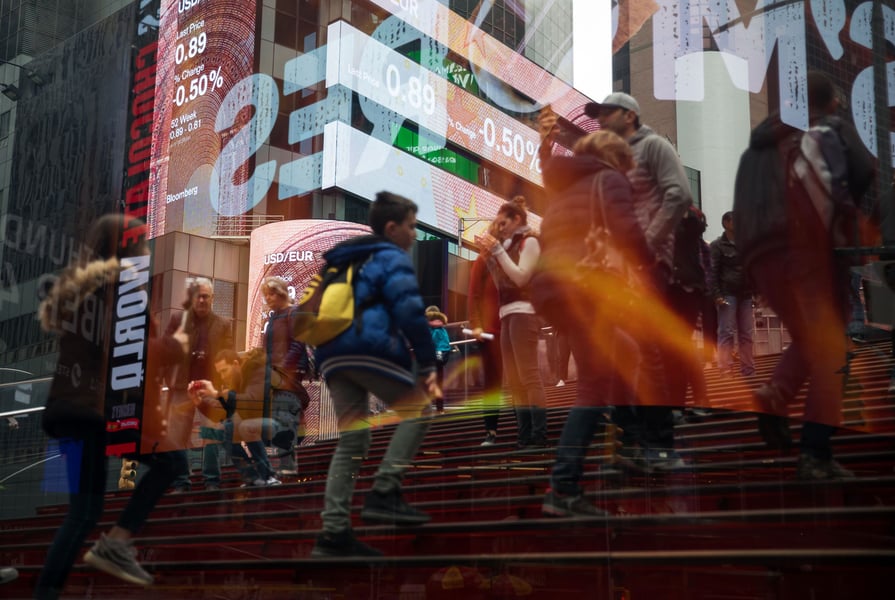Wealthy people around the globe are hunkering down for a potentially turbulent 2020, according to UBS Global Wealth Management.
[
More: Preparing for the next recession]
A majority of rich investors expect a significant drop in markets before the end of next year, and 25% of their average assets are currently in cash, according to a survey of more than 3,400 global respondents. The U.S.-China trade conflict is their top geopolitical concern, while the upcoming American presidential election is seen as another significant threat to portfolios.
![]()
"The rapidly changing geopolitical environment is the biggest concern for investors around the world," Paula Polito, client strategy officer at UBS GWM, said in a statement. "They see global interconnectivity and reverberations of change impacting their portfolios more than traditional business fundamentals, a marked change from the past."
Wealthy investors see volatility increasing next year
Nearly four-fifths of respondents say volatility is likely to increase, and 55% think there will be a significant market sell-off before the end of 2020, according to the survey, which was conducted between August and October and polled those with at least $1 million in investible assets. Sixty percent are considering increasing their cash levels further, while 62% plan to increase diversification across asset classes.
[
More: Is a recession coming? Yield curve signals loudest warning since 2007]
In the same survey in May, an even higher amount — 32% — of investor portfolios was in cash.
It's a sentiment shared by Stephen Lansdown, the billionaire co-founder of financial services firm Hargreaves Lansdown. Speaking at an event to roll out research from Guernsey Finance on wealthy families last month, he said he's "got a lot of cash at the moment" because markets have disappointed him.
[
Recommended video:
Schwab conference filled with talk of "frothy" markets and possible impeachment impacts]
Still, it seems that wealthy investor caution is strictly for the short-term. Almost 70% of respondents globally are optimistic about investment returns over the next 10 years.
"The challenge is that they seem to want to respond" to short-term uncertainty "by really shortening their time horizons and shifting to assets like cash that are safe," said Michael Crook, a managing director on the investment strategy team. Though with many of these people investing on a time horizon across decades and for future generations, that "seems like a mismatch."
Our final Women Adviser Summit of 2019 will be held in New York City.
Register now.







